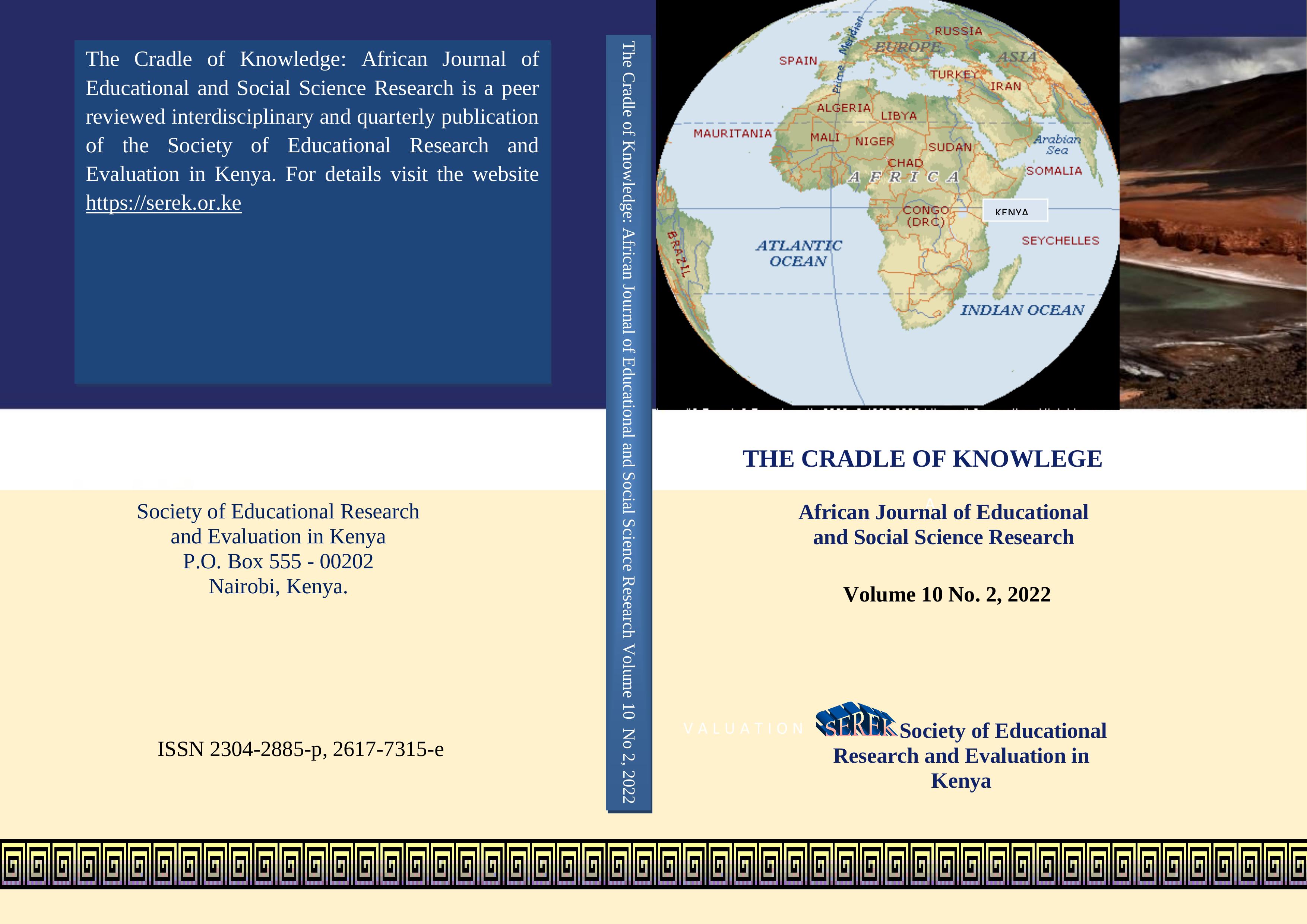
Exploring Human Rights Education in Pre-service Teachers’ Training Programs in Rwanda: Opportunities and Challenges
Abstract
The purpose of this paper was to explore opportunities and challenges of human rights education in pre-service teachers’ training programs in Rwanda. This is very important because pre-service teachers are supposed to disseminate and promote human rights education in schools after their graduation. The paper therefore, presents empirical findings collected from 415 pre-service teachers and tutors/lecturers selected in pre-service teachers training institutions in Rwanda. Both quantitative and qualitative approaches were used whereby explanatory research design was used by first collecting quantitative data and then qualitative data. Questionnaires made of open and close ended questionnaires were used to collect quantitative data and semi-structured interview and focus group discuss were used to collected qualitative data. Descriptive statistics and thematic analysis were used to analyze quantitative and qualitative data respectively. The findings were presented in graph and verbatim. The study findings revealed that initiatives to promote human rights education in pre-service teachers training programs were taken but issues such as lack of expertise and specialized teaching resources, routines and cultural practices still affect the teaching of human rights education in Rwandan teacher training institutions. Therefore, the study recommends to building the capacity of the teaching staff, to provide specialized resources and to create a powerful learning environment to enhance the teaching of human rights education in Rwandan pre-service teachers’ training institutions.
Key words: Human rights education, opportunities, challenges, pre-service teachers, RwandaFull Text:
PDFReferences
Bernie, F.G. et al. (2013). Human Rights Education in Canada. Ottawa, Ontario K1H 1E1.
Chan, A. W.H. and Cheung, H.Y. (2007). How Culture Affects Female Inequality Across Countries: An Empirical Study. Journal of Studies in International Education 11(2), 157– 179.
Hanneman L.E (2013), The Effectiveness of Experiential Environment Education: O’Neill Sea Odyssey Program Case. Unpublished Master’s Thesis. San Joe State University
Ntawiha, P. (2016). Revitalizing the Role of Education for Sustainable Peace and Security. Conference Proceedings, Kenyatta University. Twaweza East Africa Publishers. ISBN 978.9966.083.45.6
Osler, A. & Starkey, H. (2005). Changing citizenship: Democracy and inclusion in education. Maidenhead: Open University Press.
Osler, A. & Yahya, C. (2013), Challenges and complexity in human rights education Teachers’ understandings of democratic participation and gender equity in post conflict
Osler, A. (2010). Students’ perspectives on schooling. Maidenhead: Open University Press.
Pimental, X. (2006). The Human right to education freedom and empowerment. Multicultural Education, 13 (4), 2-10.
Quadri K. & Sambo A. (2011), The Relevance of the Right to Environmental Education to Sustainability Development, OIDA International Journal of Sustainable Development, 2 (8)77-84
REB (2015). Curriculum Framework pre-primary to Upper Secondary. Kigali-Rwanda
Rios F. & Markus S. (2011). Multicultural Education as a Human Right: Framing Multicultural Education for Citizenship in a Global Age. Multicultural Education Review, 3, (2) 1-36.
Rolf, G. et al. (2007), Tool on Teacher Training for Education for Democratic Citizenship and Human Rights Education
UNESCO (2014). Teaching and Learning: Achieving Quality for All. EFA Global Monitoring Report 2013/2014. Paris: UNESCO.
UNICEF/UNESCO (2007), A Human Rights-based Approach to Education for all: A framework for the realization of children’s right to education and rights within education. New York and Paris
Villagrassa, (2014). Charter on Education for Democratic Citizenship and Human Rights Education, Council of Europe.
WHO (2016). Social Justice and Human rights as a framework for addressing social determinants of health. Final Report of the task group on equity and Human Rights. Copenhagen.
Refbacks
- There are currently no refbacks.

This work is licensed under a Creative Commons Attribution 4.0 International License.
SEREK publication https://serek.or.ke
This work is licensed under a Creative Commons Attribution 4.0 International License